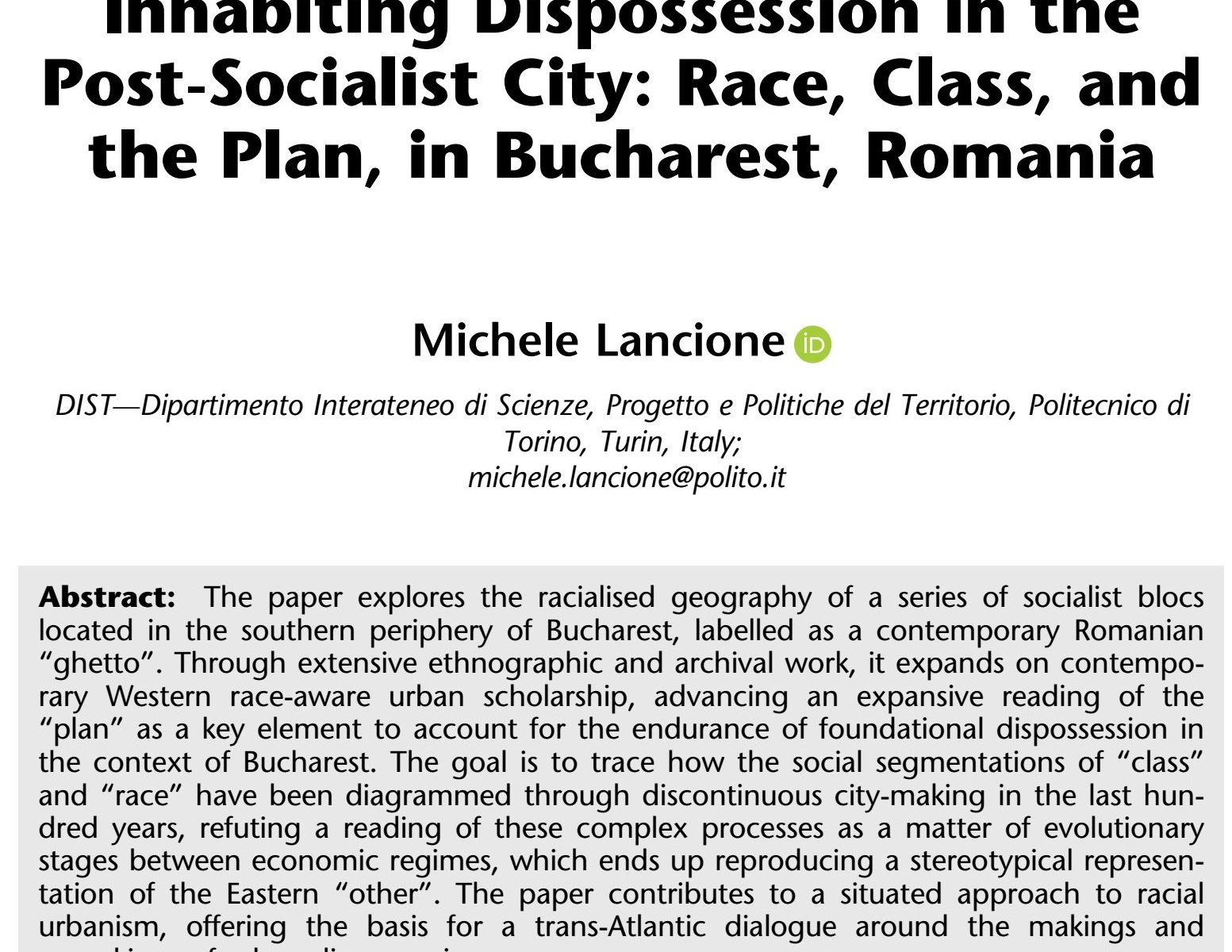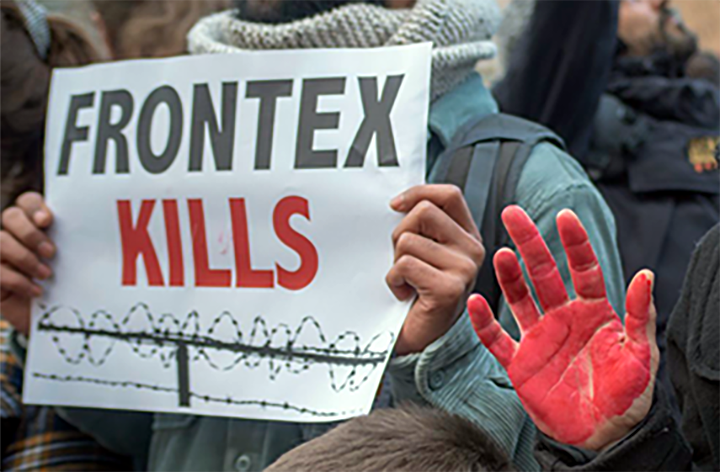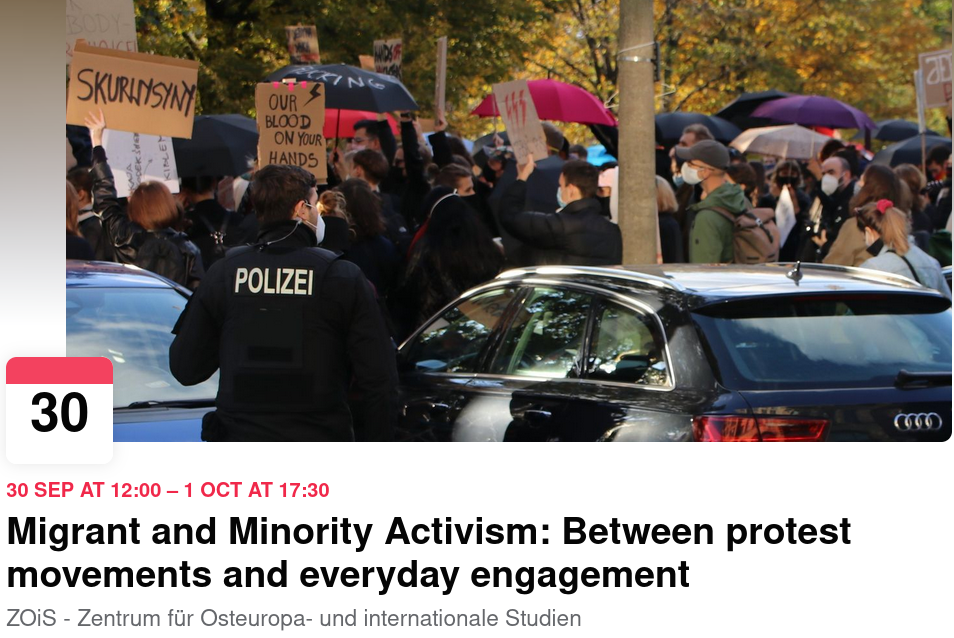My Department at the Polytechnic of Turin is creating maps for Frontex, the EU border control agency, which is involved in the violent pushbacks of refugees.
I wrote to Altreconomia – the magazine that broke the story – to dissociate myself and to fight this agreement. The full story is available on their website: https://altreconomia.it/non-a-fianco-di-frontex-chi-si-dissocia-dallaccordo-del-politecnico-di-torino/
I have translated the piece in English below.
With a few colleagues we have been fighting this agreement since July when it was announced, and we will continue to fight it now. This public statement is a message for students and partners. Some of us are not silent, some of us are vigil, some of us will not stay put. Universities are complicit in bordering and racial violence: it needs to stop.
UPDATE 4-11-2021: Two major news outlets, among others, are talking of this matter today in Italy. Francesca Spinelli interviewed me for the Internazionale , while il Manifesto has published a collective letter of Italian academics working on migrations to keep #Frontex out of our Academic Institutions. A nationwide campaign has also started from the grassroots, at Lasciateci Entrare.
Not alongside Frontex
“The deeds were monstrous, but the doer […] was quite ordinary, commonplace, and neither demonic nor monstrous.”
Hannah Arendt
I am an academic from the Interuniversity Department of Regional and Urban Studies and Planning (DIST) of the Politecnico and the University of Turin. I am writing this text to publicly dissociate myself from the agreement signed between my Department, the Politecnico di Torino, Ithaca Srl and Frontex, the European Border and Coast Guard Agency.
As an article published by the magazine Antreconomia points out, the agreement, which involves the production of cartography at my Department’s laboratories on behalf of Frontex, was announced on July 14, 2021, by press release. In the communiqué, it is stated that DIST and Ithaca will be involved in the “production of digital cartography, infographic maps and map books useful for the Agency’s work“. On an intellectual and human level, I am not represented by the position of the institution I work for, which has chosen to define the agreement with Frontex as a project that “fits perfectly into the strategic objective of the Department”. The issue, however, is not only personal but political.
The European Border and Coast Guard Agency has been accused by NGOs, activists, and international agencies on several occasions of being directly involved in the violent deportations of migrants at European borders. The most notorious is the Greek case, now before the European Court of Justice, where we are sure of the illegality of the Agency’s forced removals and its role in destroying documents that show the illegal use of force to return refugees to Turkey. This episode is just the culmination of a strategy operated by the European Union, through Frontex, to manage the EU’s borders through expulsive, racialising and lethal principles against those who move to seek protection on the continent.
As a critical academic and a citizen engaged, through the privilege of my position, in understanding and combating the structural and mundane violence constructing, and managing, the racialised “other”, I have done everything in my power to highlight the gravity of this agreement between a public university – my Department – and Frontex. I mobilised with some colleagues since July 14 (the day I learned about the contract) to question what was decided. We spoke out in the departmental council, where the agreement was presented, highlighting the gravity of the decision. We then worked to understand whether it was possible to cancel the contract. We also asked that this activity should not be carried out on behalf of the whole Department, but that the individuals involved should take the weight and responsibility of their action. On all fronts, the responses were negative: we received just offers of dialogue, discussion, and matter of internal power-balancing. But this is not enough.
The problem here is not just in the kind of data that Ithaca and my Department will provide to Frontex. The researchers involved in the project say it is open source, harmless data. Beyond the fact that no data is ever harmless, the issue is about lending one’s name – individual and institutional – to legitimise the work of an agency like Frontex. Because this is what you do, when you collaborate: you help the violent and expulsive apparatus of the European Union to legitimise itself, to clothe itself with scientific objectivity, to reduce everything to a technical issue that reproduces its evil by turning it into a passing of documents between hands. History should have taught us something in this respect in Europe, but clearly, we have learned nothing.
The Department has chosen to continue the agreement, inviting me and some colleagues who have expressed reservations to contribute to its development by highlighting the problematic aspects of Frontex’s activity. It has also decided not to publicly represent our dissent, preferring the line of silence, which is also that of the Polytechnic.
However, I believe it is impossible to work with those who, like Frontex, repel, foment xenophobia, and kill. With this text, I dissociate myself from the agreement. At the same time, I renew my commitment to my students, colleagues and partners who will always find, in my Department and at the Politecnico di Torino, tools and spaces for radical criticism, which requires a precise positioning: not alongside Frontex.
Michele Lancione, Full Professor of Political-Economic Geography, DIST, Turin



